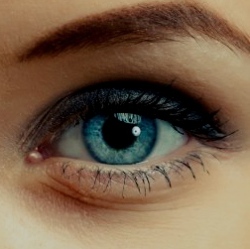
People tend to see VR mostly as an improvement in the game playing experience, but this technology has much broader sweeping implications. The fact that innovations like Google Cardboard and Oculus Rift are creating easier access to the technology, and 360 video cameras are propelling us into the the virtual world.
Although amazing user experience with video games is great, an under appreciated element to VR becoming massively adopted is how it affects business. For example, new car company Faraday Future claims it will use VR to radically improve its production process, reducing development time and increasing precision.
Another arena where VR is improving business practices comes in the form of marketing research. Companies are now using VR to collect data from participants in VR focus groups who can virtually shop. Using eye detection technology they can collect data on shoppers tendencies and preferences.
By using the VR to create the shopping experience the researchers can put participants through many more simulations that actual shopping, giving more data and in a much more efficient fashion. This provides researchers data on brand importance, shelf positioning and package designs. Additionally, the research costs 50% less than conventional research and provides significantly more data.
This gets even more interesting, because they can now combine the VR studies with neurological studies. When the VR is studied while witnessing brain output with EEG. This can show how subject subconsciously react to such things a signs and packaging. By combining these methods, they also remove participation bias, where the subject tries to act how they think they are expected.
"A virtual shopping study can also be combined with a neurological study to better understand how shoppers react," according to information published by Rutgers University.
Neuro Focus, a neuromarketing company headquartered in the Silicon Valley, has developed a virtual store simulation tool called N-Matric 3D which "captures consumers’ responses at the subconscious level through EEG-based full-brain measurements.
One application that could be practical if not entertaining comes in the form of medical practices. In particular VR has been proven more effective than traditional methods in improving the recovery of stroke victims, particularly with upper limb functions, grip strength, gait speed and daily activities for recovering stroke victims.
And rounding out some of the less entertaining uses is how VR makes science even cooler With VR, people can better experience science instead of merely memorizing facts. By putting people into the action, they can stand next to a dinosaur or volcano or travel virtually to the stars. These applications don’t merely make learning easier, they make learning fun, fostering a desire to learn more.
Is virtual reality going to improve gaming? Absolutely. Is that the only benefit? Not by a long shot. Virtual reality is improving and will continue to improve our ability to tap into otherwise inaccessible experiences that can improve our production, marketing, health and education to name a few. And because the cost of this amazing technology is now low enough to reach mass markets, the future, be it virtual, will be interesting to experience.
